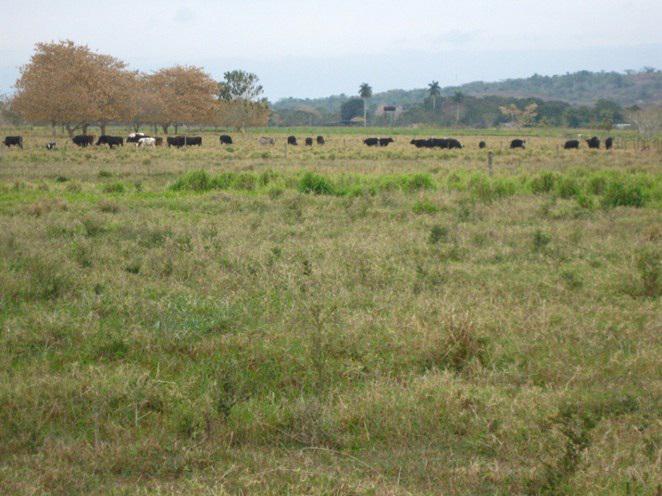Grisel de la Caridad Cabrera Dávila
Other projects
8 May 2013
Impact of Land Use Intensity on Soil Macrofauna in Western Cuba. The Macrofauna as Bioindicator of Soil Fertility
The project is about the extension of knowledge on diversity, function and practical use of soil macrofauna to assess soil quality in the urban agriculture environment in Cuba.

The soil macroinvertebrates can be used as bioindicators of soil health due to changes that shows under various agricultural practices and land use intensities. In Cuba, the result on the variation of soil macrofauna in different use systems has allowed to propose practical indicators to assess soil quality. The application of such indicators would be a useful tool for professional, technical and production level to monitor the quality and productive capacity of soil, mainly in agro-ecosystems, including urban agricultural systems.
The movement of Urban Agriculture in Cuba is an effective solution to increase the availability of diverse and healthy agricultural products for the population, with the primary use of agroecological methods in productive spaces as organoponics, organic farms, intensive plots and family gardens. Despite the development in urban agriculture in the country, diversity, function and use of macrofauna bioindicators are unknown. For this reason, the study and application of soil macrofauna in the urban agriculture environment in Cuba would be suitable to evaluate different urban agricultural systems and thereby ensure sustainable food production for the population.
The project has the following specific objectives: characterization of soil macrofauna in urban agricultural spaces as organoponics, organic farms and intensive production plots; promotion of the functional importance of the macrofauna and their use as practical indicators to assess and conserve soil quality, with capacitation to professionals, technicians and producers; validation of practical indicators of macrofauna from its relationship with physico-chemical soil properties and the knowledge of local communities about this fauna. The total duration of project will be 12 months and it will develop in different urban agricultural systems belonging to the Alamar and Cojimar localities at Habana del Este municipality. The sampling of soil macrofauna will be carried out in a one time during the rainy season, using the standard TSBF methodology. Moreover, the project will contribute to the training of professionals, technicians and producers through the promotion of the manual created on practical work with soil macroinvertebrates (1st Rufford Small Grant outcome). In addition, educative talks will be held in the urban agriculture field; develop, circulate and disseminate pamphlets illustrating the activity of soil fauna, which will facilitate the understanding of this knowledge. The work also will help in educating local communities and future generations about the importance of preserving this part of biodiversity because of its ecosystem function and practical utility.